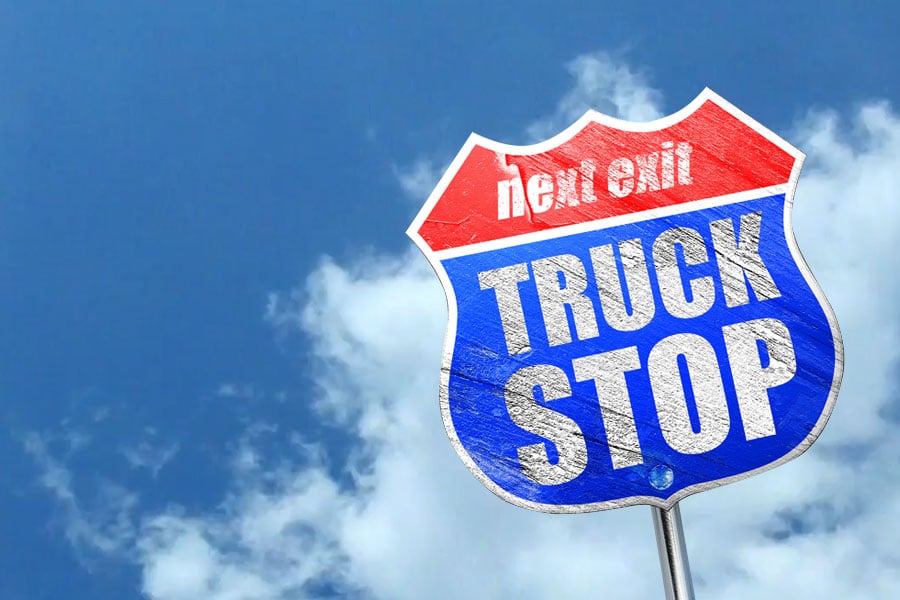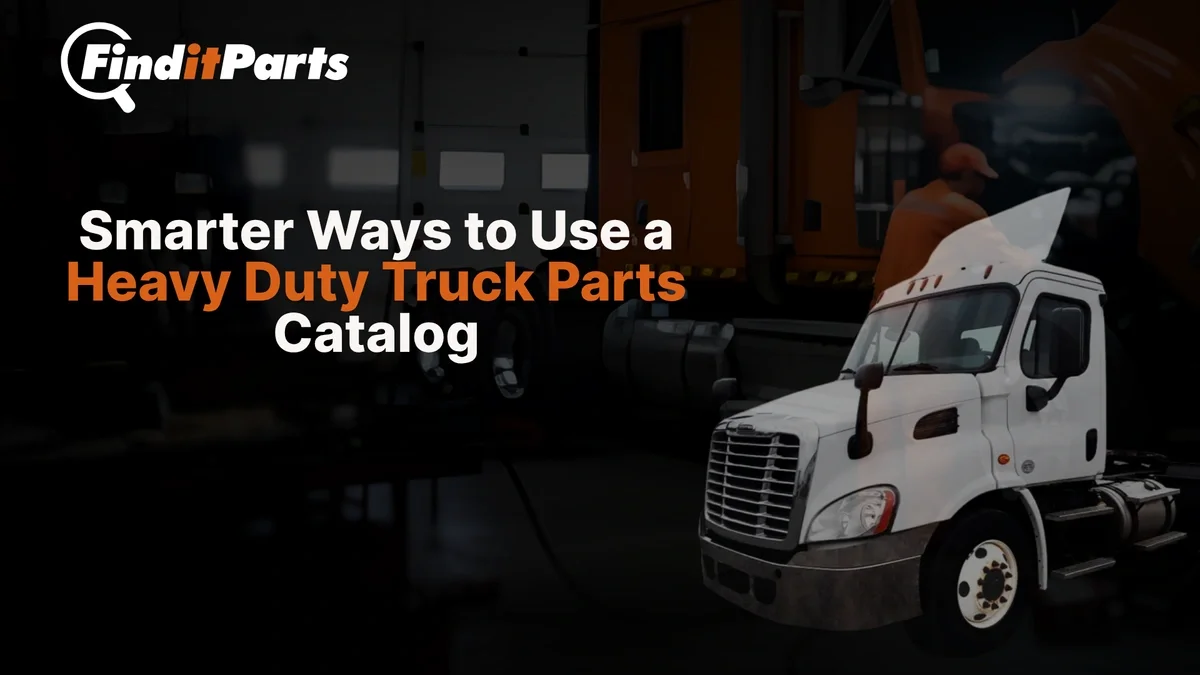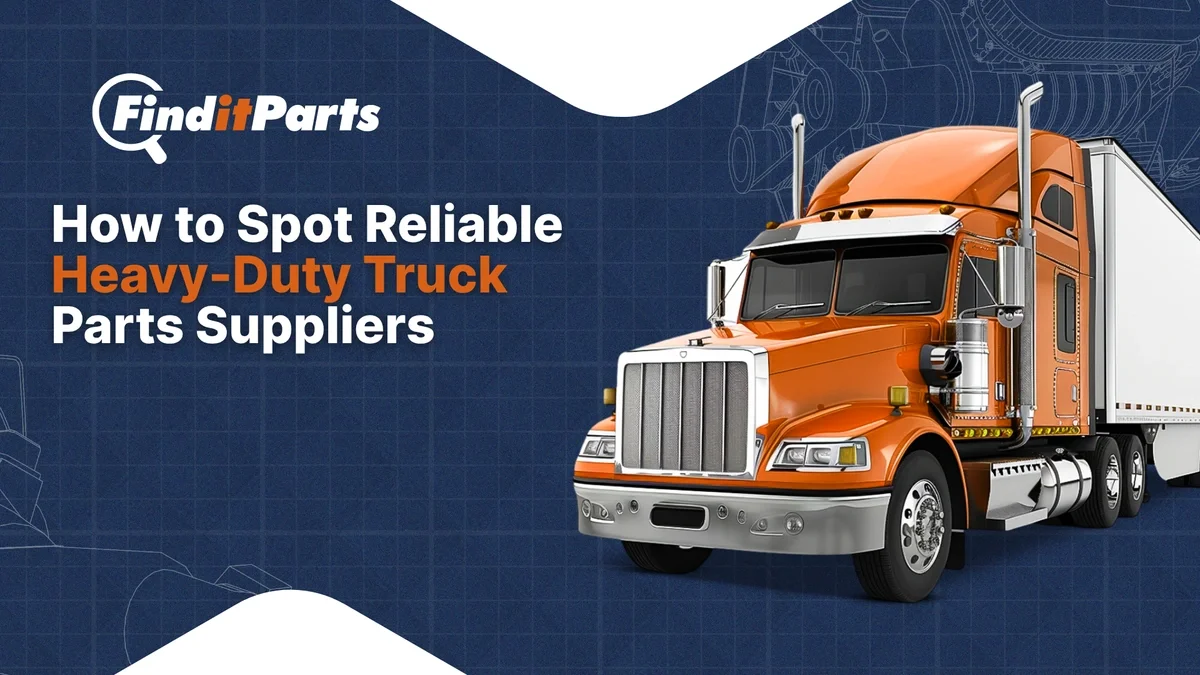Need help? We're here!
(888) 312-8812 Login SignupTruck Stop Dos and Don’ts
August 16, 2021

Image Source: Drive for Dot
Truck stops play a critical role in helping truckers across the nation work efficiently and effectively. However, not all truck stops are created the same. Some may have all the amenities and services that you need—such as a gas station, restaurant, wide parking lot, showers, lounges, souvenir shops, and more—but the big question is, “Are truck stops safe and convenient?”
Truck stops can be a haven for truckers who spend long hours on the road. But if they are not convenient and safe for you and your truck, then that’s a totally different story. You see, a large number of truck-trailer accidents occur at truck stops. And if you let your guard down for just a minute or two while at a truck stop, you can even find yourself in a dangerous situation.
All truck stops may not be equal. But you can always make your truck stop experience as worthwhile as possible if you follow these simple tips.
Dos
Plan ahead.
According to the American Transportation Research Institute, truckers usually pull over at a truck stop between 4:00 PM and 11:00 PM. There are so many truck drivers in the country, yet there are only a few designated parking areas at each truck stop. So, if you are a newbie truck driver, you might feel overwhelmed to see so many truckers parking at the same time at your chosen truck stop. Avoid this inconvenience by planning your day accordingly and ending it before the “truck stop rush hour” even starts.
Park where there is space around you.
There are many reasons why there are increased odds of truck damage at truck stops, and one such reason is that trucks tend to be longer than any other vehicle. To avoid the possibility of colliding with longer trucks, you’d better choose a truck stop with a wide parking lot. And once you are there, be sure to park where there is space around you. Not only this makes parking a lot easier for you, but this also prevents you from backing or crashing into a nearby parked truck, especially if it’s longer than your rig. Also, avoid parking your truck in a busy area as much as you can. You may be skilled in parking your truck, but you never know when a low-skilled driver may back into your truck and punch out your rad.
Take care of everything you need at the truck stop.
Before you park your vehicle at a truck stop, consider the things you need to do to save time and prevent any untoward incident that may arise from stopping at multiple stops. Do you need to refuel, eat, and rest for a while? Then, choose a truck stop that has a gas station, a restaurant, and a lounge for relaxation. Or are you looking for a stop with a vehicle repair service to help you replace a failing truck headlight? Whatever your needs are, be sure to take care of them at once so you don’t have to pull over at the next truck stop again. Many truck stops provide more than just refueling, food, and parking services these days, so feel free to choose the best stop that offers all the services you need.
Ask for help from truckers parked nearby when you need it.
Many accidents occur in truck stop parking lots, given the tight parking situations. So, if you ever find yourself in such a dilemma and you don’t know how to handle it, ask for help from truckers parked nearby. The same is true when you sense any danger while resting inside your truck. If you are in trouble, signal for help by flashing your lights and honking your horn to catch the attention of other truckers around you. Remember: even in the safest truck stops, there are risks of robbery, attack, and damage to your vehicle. So, take the necessary precautions and be vigilant at all times.
Don’ts
Park on the end of a row.
Many truck drivers choose to park their vehicles on the end of a parking lot when they pull over at truck stops. The reason being that they are already tired after a long day on the road and that the end of a row is usually the closest spot. If many do it, then it’s high time you don’t. It saves you not just from the hassle of backing out when you leave but also from the risk of being behind a vehicle that will be blindly backing toward you, which is, of course, a known recipe for disaster.
Disclose cargo information to others.
Whatever cargo you are carrying—electronic equipment or a luxury car—do not ever disclose such crucial information to other truckers or anyone at the truck stop. Cargo theft is an ongoing problem among drivers, so be discreet about the items you carry to avoid this information getting into the wrong hands. As much as possible, avoid talking about your freight when you are in public or within earshot of others.
Leave your windows and doors unlocked when you're in the back of the cab.
Leaving your truck windows and doors unlocked while in the back of the cab is a sure way to invite trouble. No matter how tired or sleepy you are, see to it that your windows and doors are locked to prevent hands from reaching into the front of the cab. You may even use seatbelts and tie bungee cords to make them even more secure. Even at the best truck stops, there is always a risk of burglary or robbery. So, always be on the safe side by keeping your windows and doors locked.
Keep valuable items in front of your cab.
Valuable items in plain sight make your vehicle a prime target by thieves. So, do not store them in front of your cab to prevent thieves from opening your truck window or door. If you can't help it, be sure to pull the blinds over the front windshield to hide them from prying eyes. It's also best if there is a dashcam installed inside your vehicle so that it can capture would-be perpetrators.



